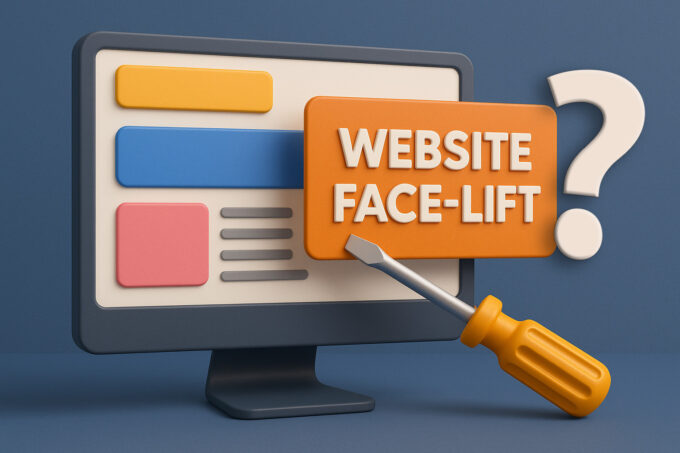If you own a website or manage an online business, you may have come across the term “website service plan.” But what exactly is it, who needs it, and what does it cover? In this blog post, we’ll delve into the world of website service plans, answering frequently asked questions, providing useful tips, and offering sound advice.
What is a Service Plan?
So, you have a website. And there is a problem with it. You call the hosting company and a host of pre-recorded answers get you nowhere. Try online chat tool and receive a list of pre-determined answers. No real person to help you on the horizon. Wouldn’t it be nice to have someone at your side to help. AKA – “The Plan”. A website service plan is a subscription-based maintenance plan that provides you with a pre-paid amount of website editing, fixes, or improvements. It’s like having a dedicated team of web experts on standby, ready to take care of your website’s needs promptly and professionally.

Who Uses Service Plans for Their Website?
Businesses that prioritize their products and services are prime candidates for website service plans. While larger companies can afford to maintain an in-house web design and development team, mid-sized businesses with professional web presence and occasional editing, improvement, and maintenance needs benefit most from these plans.
What Does a Website Service Plan Cover?
Depending on the subscription level, service plans can encompass proactive maintenance, uptime monitoring, security breach monitoring, and per-request changes and improvements. Some plans may even offer suggested upgrades or professional tuning to enhance your site’s performance.
Does a Service Plan Cover Search Engine Optimization (SEO)?
While some service plans may include SEO services upon request or periodic overviews, their primary focus is to ensure your website functions smoothly and efficiently. For comprehensive SEO services, it’s best to opt for a dedicated professional SEO plan.
Can Major Overhauls Be Done Through a Service Plan?
Service plans are not meant for complete redesigns or rebranding of existing websites. However, they can be effectively utilized on a monthly basis to gradually achieve the desired changes and improvements. Maximize your plan by utilizing all the allocated time each month.
Can I Cancel and Re-Activate the Service Plan?
Our service plans are designed for long-term support, but we offer a cancel-any-time policy. We encourage a continuous relationship, but you can cancel the plan if needed. Keep in mind that re-activating a plan after an extended break may not cover accumulated maintenance needs.
Do I Need a Website Service Plan?
Yes, without a doubt! Unless you have a team of experts on staff, including designers, web developers, server IT techs, SEO specialists, marketing professionals, and web architects, a service plan is essential. It ensures that your website stays updated, secure, healthy, and modern in all aspects.
In conclusion, a website service plan is a valuable investment for any online business or website owner. It provides peace of mind, efficiency, and professional support, allowing you to focus on what matters most – your core business. So, consider adopting a service plan today and keep your website running at its best!



